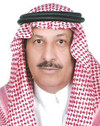KSA honored to handle Haj

Haj is an annual religious event that Saudi Arabia has been managing every year. The arrangements have been flawless with increasing facilities for the pilgrims. Haj preparations are unfathomable for people who are not aware of its long and painstaking planning; and about readiness and efforts that are exerted to ensure a safe and successful Haj.
But, the question of Haj becoming a cumbersome job seeks attention. This year’s Haj is like any other previous one, but it is different this time in one aspect. There are few outside elements that the Saudi government doesn’t have any control or influence on. One of them — elements to carry out Iran’s intentions to provoke trouble during Haj. And the other important point is the possible intentions of terrorist groups for whom human lives don’t matter, no matter how sacred the place is. Also, there was the fear of having some visitors for the Haj season arriving with transmissible diseases or even bringing narcotics or illegal stuff. These were some concerns that faced the Saudi government before this Haj season.
Preparations for Haj start at early stages. It starts immediately after the holy month of Ramadan, which in itself is the busiest month for the Umrah season.
It is a month in which millions of Muslims would come to the two holy cities of Makkah and Madinah to visit the Grand Mosque and the Prophet’s Mosque. And there are many internal challenges that the Saudi government has to overcome.
Come Haj and there will be scores of hospitals with tens of thousands of hospital beds ready; and thousands of ambulances and mobile health care units. Civil defense personnel with state-of-the-art equipment remain ready for any emergency. Tens of thousands of security personnel monitor the movement of Hajis at every stage of the pilgrimage. Tens of aviation equipment installed at the command and control centers monitor and help the Haj committees to control the movement of Hajis. In addition, there are countless preparations from the day the names of Hajis are submitted. Hajis coming from outside the Kingdom have their visas processed and those from inside have to have their Haj permit processed.
Simply put, this year’s Haj is a success story of collective efforts by all ministries and departments. Custodian of the Two Holy Mosques King Salman and Crown Prince Mohammed bin Naif were on the scene monitoring the Haj process in all its details.
Saudi Arabia has over the years overcome many challenges, but these challenges were overcome with genuine sense of duty toward every Haji coming to perform Haj. The Kingdom this year spared no effort to put in place a full-proof plan. It put in place modern technologies that ensured the smooth flow of Hajis between the places of worship; millions of Hajis visited the Grand Mosque, Muzdalifah, Arafat and Mina without any hassle; they were provided with all the essential services to perform Haj.
Before the start of Haj, all eyes were focused on Saudi Arabia. Haj is followed, watched and monitored by millions of Muslims and non-Muslims around the world through modern-day media outlets. This year’s Haj brought millions of Muslims together. And this year is an outstanding time for many Muslims to set their differences aside and unite like the way they united when they were at Arafat and other holy sites. There are lessons that can be learned especially from this year’s Haj. One of them is the Saudi determination to utilize all its resources to guarantee safe and smooth Haj for all.
At the end of the day, Haj is not a liability but an honor for Saudi Arabia that Allah Almighty has given us to serve all Muslims and to do good to others all over the world as a duty to help the others. Saudi Arabia is a country that has taken upon itself to fulfill its obligation toward all mankind and that is not only during the Haj season.
Disclaimer: Views expressed by writers in this section are their own and do not necessarily reflect Arab News' point of view








































